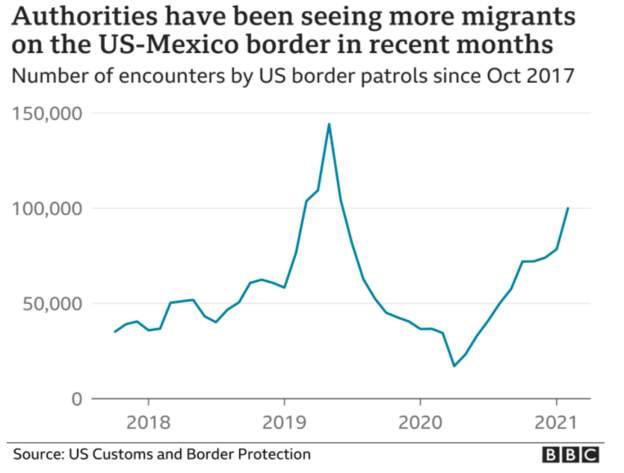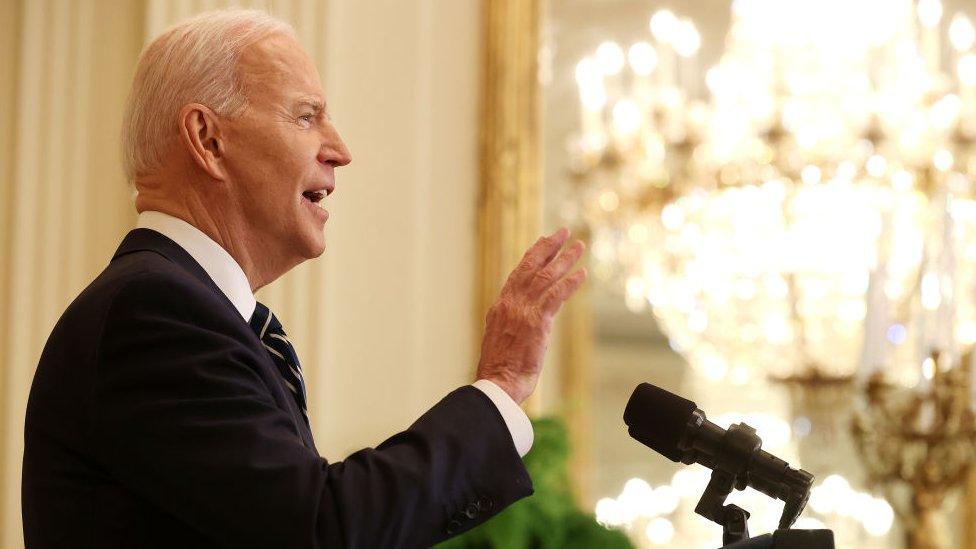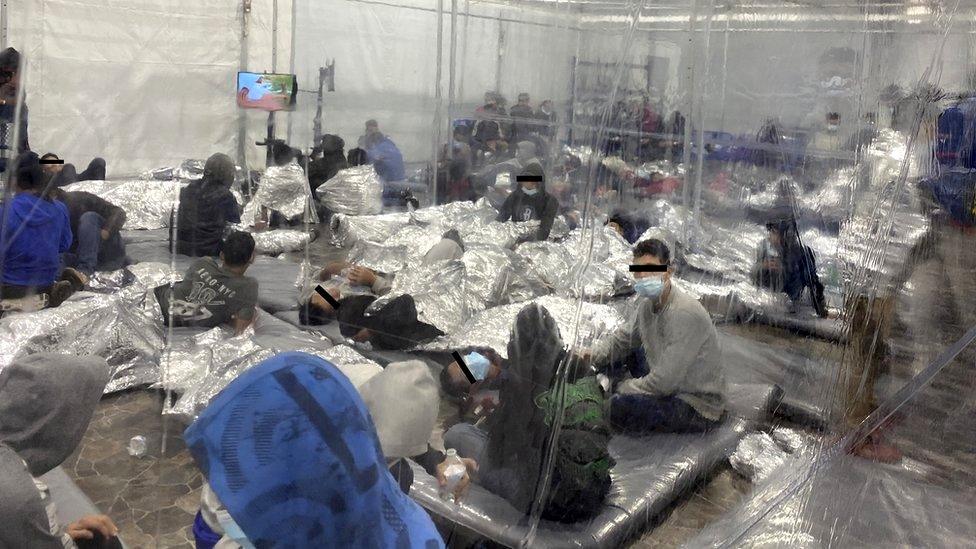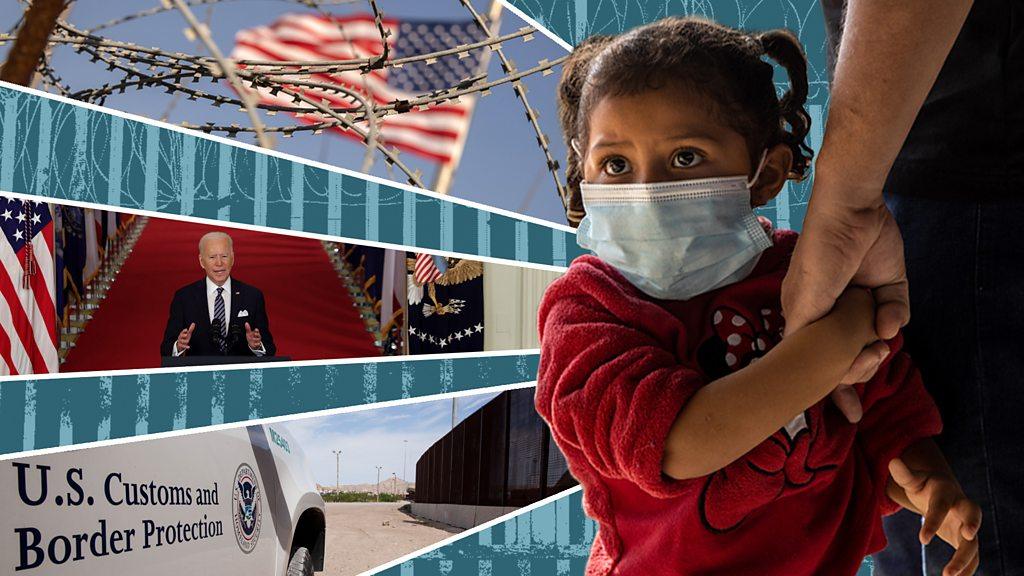Biden pressed on child migration at first news conference
- Published
"My predecessor - oh God, I miss him" - and other news conference highlights
US President Joe Biden was pressed on how he would address the surge in migrants at the southern border at his first official press conference.
More than 17,000 children are being kept in government detention centres and Mr Biden was challenged on whether his policies could be contributing to the increase in child arrivals.
The president defended his record and vowed to be transparent.
The hour-long event also covered subjects from guns to foreign policy.
He also doubled his administration's vaccine rollout goal, saying that he now aims to have 200 million jabs be given before his 100th day in office.
But questions about the situation at the US-Mexico border dominated the event.
What did Biden say about the surge?
During the White House news conference, Mr Biden blamed his predecessor Donald Trump for the growing humanitarian crisis on the southern border, and said it was normal for the US to experience an influx of migrants in cooler months.
"The truth of the matter is, nothing has changed," he said, adding: "The reason they're coming is that it's the time they can travel with the least likelihood of dying on the way because of the heat in the desert."
"I'd like to think it's because I'm a nice guy, but it's not," he said, calling the surge a cyclical event.
He also blamed the "circumstances in their country," including natural disasters, crime and lack of economic opportunity.
Asked when he would make government-run detention centres open to visits from reporters, Mr Biden said he "will commit to transparency".
"You'll have full access to everything," he said, but declined to give a timeline.
What else was covered?
Topics raised during the press conference ranged from questions over gun control to whether the US would keep its commitment to withdrawing troops from Afghanistan by a 1 May deadline agreed to by the previous administration.
Mr Biden admitted that it would be difficult to meet that timeline, and punted on answering questions over what he could accomplish on what he called "long-term" problems such as gun legislation.
He also made news by saying he planned to run for re-election in 2024 - a question that had been a source of speculation until today.
Mr Biden opened the event with an update on the US Covid-19 response, saying that he would aim to deliver 200m jabs in his first 100 days - a plan he said was "ambitious" but possible.
"No other country in the world has even come close, not even close, to what we are doing," he claimed.
The US has so far delivered over 130 million doses of the vaccine - but it still lags behind other countries in terms of the number of shots administered relative to the size of the population.
According to US health experts, approximately 2.5m doses are now being distributed per day.
What has been happening at the border?
The US Customs and Border Protection agency releases monthly figures of the number of "encounters" at the southwest land border.
In January and February 2021, 78,442 and 100,441 people were apprehended, respectively. This is a significant increase from previous years.
Still, the highest number in the last few years was in May 2019 during Mr Trump's presidency - when over 140,000 people were apprehended by the authorities.


What is the reason for the surge?
There are several factors driving the surge at the southern US border. They include:
Hope in Biden - "They told us that the US president would order the removal of all obstacles on our path," 17-year-old Michael told BBC News as he travelled from his native Honduras.
Natural disaster - "Our houses collapsed with [Hurricane] Eta. We lost everything," says Jacqueline, a pregnant 19-year-old walking to the US on foot.
Gang Crime - "We tried to start again with our business, but they demanded money from us. We were victims of extortion," Jacqueline adds.
Central American Violence - "One needs to risk everything. But it is better to risk your life here," says her husband Lionel on their journey through Mexico. "In Honduras you might get killed anyway".

Related topics
- Published25 March 2021

- Published23 March 2021

- Published24 March 2021
